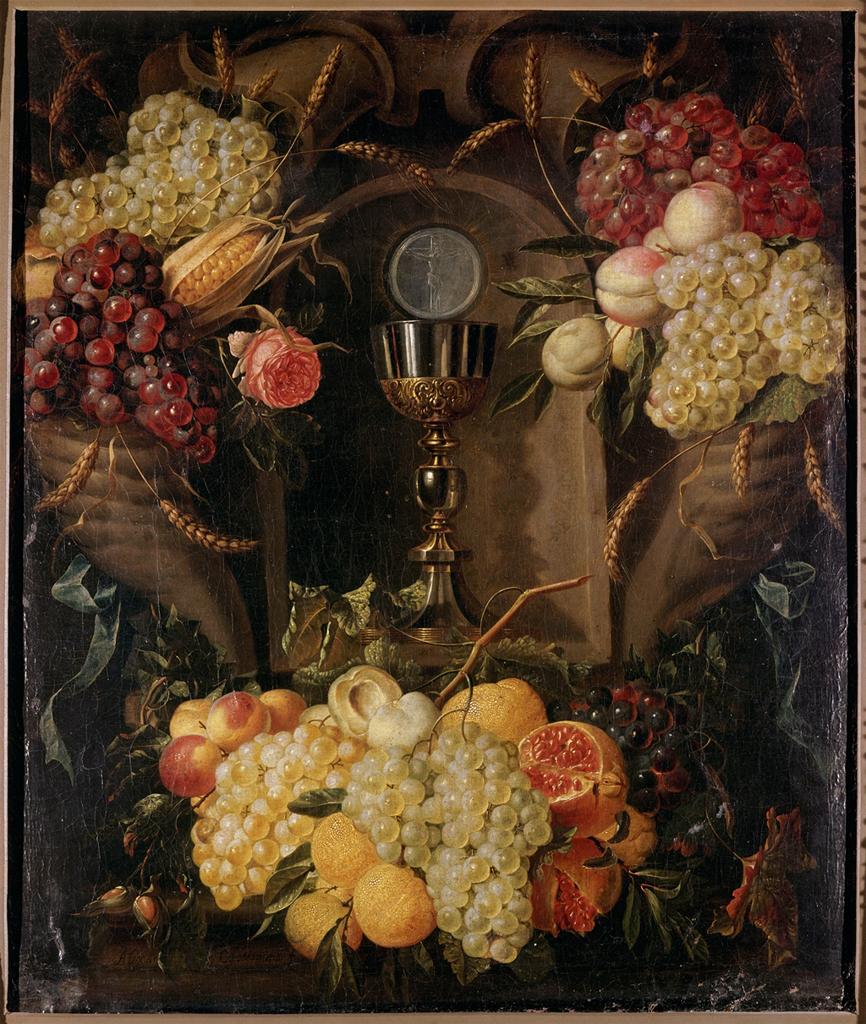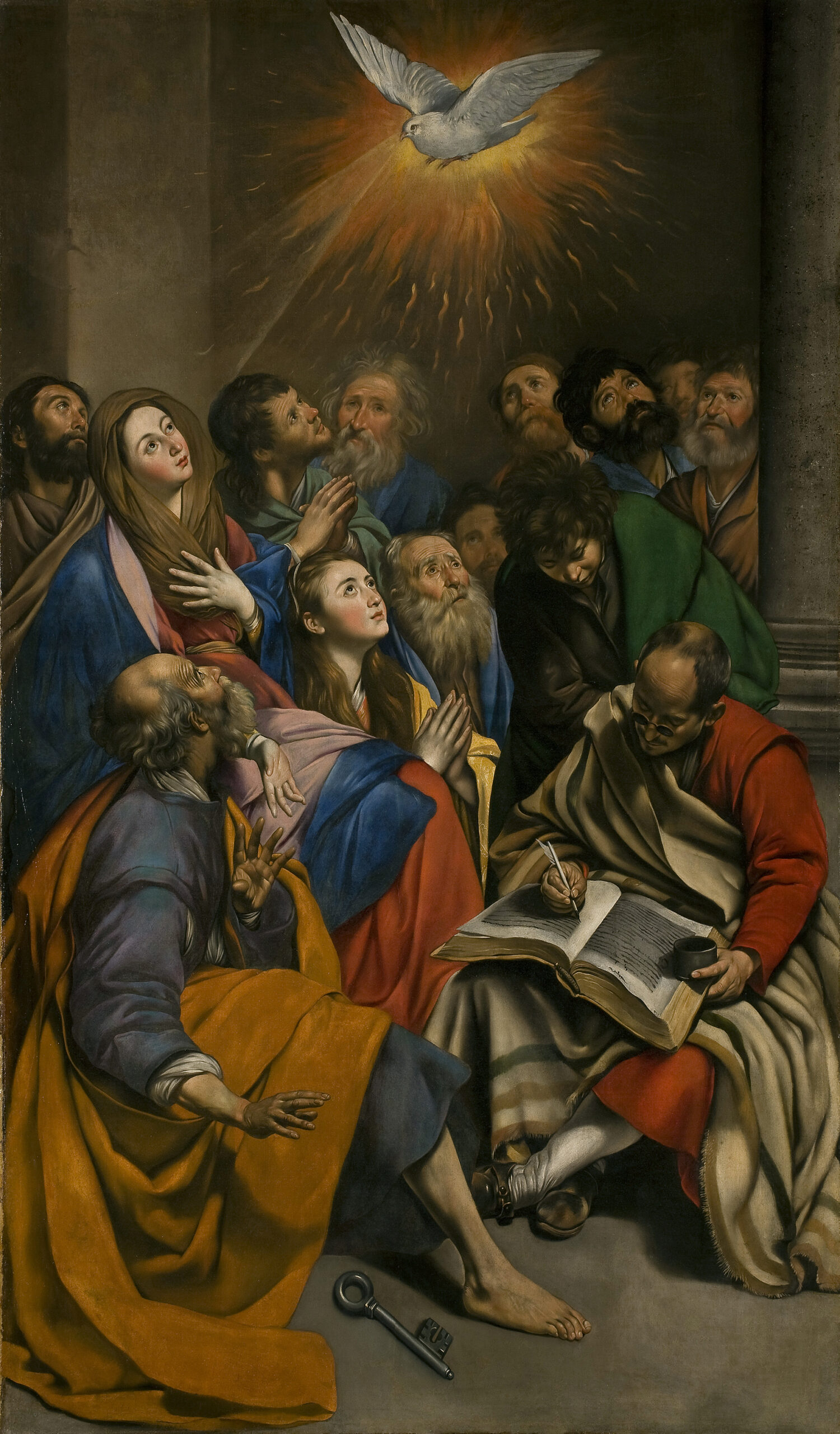The greatest privilege attached to virtue is the care which God exercises over those who serve Him. From this, as from a fountainhead, flow all other favors. Though God’s providence is extended to all His creatures, yet He manifests a special care for His faithful servants. To appreciate the greatness and goodness of God’s providence we must have experienced it, or attentively studied the Holy Scriptures, which, from the beginning to the end, treat either directly or indirectly of God’s care for His creatures.
Throughout the Bible we behold two characteristic features: on the one hand God commanding man to obey Him, and on the other promising him, in return for this obedience, inestimable rewards. To those who disobey, He threatens the severest torments. This doctrine is so distributed through the Bible that all the moral books contain God’s commands and promises and threats, while the historical books record the fulfillment of the same, manifesting how differently God deals with the just and with the wicked. All that God commands us is to love and obey Him, and in return He offers us inestimable blessings for this life and the next.
The most important of these blessings is the fatherly love and care with which He watches over His children. His solicitude for them exceeds that of any earthly father. What man ever reserved for his children an inheritance comparable to that of eternal glory? What man ever suffered for his children the torments endured by Our Savior? At no less a price than the last drop of His Blood He purchased the Kingdom of Heaven. What can equal His constant care for us? We are ever present to His mind, and He constantly helps and supports us in all the labors of life. “Thou has upheld me by reason of my innocence,” says David, “and hast established me in thy sight forever” (Ps. 40:13). And again: “The eyes of the Lord are upon the just, and his ears unto their prayers. But the countenance of the Lord is against them that do evil things; to cut off the remembrance of them from the earth” (Ps. 33:16-17).
As the greatest reward of the Christian in this life is God’s fatherly care, and as our joy and confidence must increase in proportion to our faith in this providence, we shall add here a few passages from Scripture in proof of this doctrine. In Ecclesiasticus we read, “The eyes of the Lord are upon them that fear him; he is their powerful protector, and strong stay, a defense from the heat, and a cover from the sun at noon; a preservation from stumbling, and a help from falling; he raiseth up the soul, and enlighteneth the eyes, and giveth health, life, and blessings” (Ecclus. 34:19-20).
“With the Lord,” says the prophet, “shall the steps of a man be directed, and he shall like well his way. When he shall fall he shall not be bruised, for the Lord putteth his hand under him” (Ps. 36:23-24). And he says again: “Many are the afflictions of the just, but out of them all will the Lord deliver them. The Lord keepeth all their bones; not one of them shall be broken” (Ps. 33:20-21). This providence is still more strongly set forth in the Gospel, where Our Savior affirms that not a hair of the just shall perish (Cf. Lk. 21:18). Even stronger is His assurance expressed by the mouth of His prophet: “He that toucheth you toucheth the apple of my eye” (Zach. 2:8).
Besides this care which He Himself has for us, “He hath given his angels charge over thee, to keep thee in all thy ways. In their hands they shall bear thee up, lest thou dash thy foot against a stone” (Ps. 90:11-12). Thus the mission of these pure spirits is to help the just, who are their younger brethren, to walk in the way of piety. Nor does their ministry cease at death, for we read in St. Luke that the holy beggar Lazarus was carried by angels into Abraham’s bosom (Cf. Lk. 16:22). The royal prophet tells us that “the angel of the Lord shall encamp round about them that fear him, and shall deliver them” (Ps. 33:8).
We find another illustration of God’s guardianship and defense of the just in the Fourth Book of Kings (Cf. 4 Kg. 6), where we are told that when the servant of Eliseus feared for his master, against whom the King of Syria with all his army advanced, the prophet begged the Lord to open the eyes of his servant, to show him that there were as many for Eliseus as there were coming against him. The prophet’s prayer was heard, and the servants beheld the mountain full of horses and chariots of fire, and in the midst of them Eliseus. Does not the Holy Spirit will to teach us by these symbols the care with which God surrounds the just?
This protection not only delivers the just from evil and leads them to good, but turns to their profit the sins into which they are sometimes permitted to fall. For after a fall they acquire greater prudence, greater humility, and love God more tenderly for pardoning their offences and delivering them from their evils. Hence the Apostle tells us, “All things work together unto good” to them that love God (Rom. 8:28).
And this protection God extends to the children of the just to all their prosperity, as He Himself assures us, saying, “I am the Lord thy God, mighty, jealous, visiting the iniquity of the fathers upon the children, unto the third and fourth generation of them that love me; and showing mercy unto thousands to them that love me and keep my commandments” (Ex. 20:5-6). His words are verified in His treatment of the house of David, for whose sake He would not destroy his posterity, though they several times merited it by their crimes.
No less striking was His mercy to the children of Abraham, for whose sake He repeatedly pardoned them. He even promised that Ismael, Abraham’s son, though born of a bondwoman, should “increase and multiply exceedingly,” and grow into a great nation (Gen. 17:20). He protected even the holy patriarch’s servant, whom He guided in his journey and instructed in the means he should adopt to procure a wife for Isaac. He is not only merciful to servants for the sake of a good master, but He even blesses wicked masters because of just servants, as we see in the history of Joseph, whose master God visited with prosperity because of the virtuous youth who abode in his house. Who, then, would not be devoted to so generous, so grateful a Master, who watches so carefully over the interest of His servants?
Numerous are the titles which the Holy Scriptures use to express God’s providence. The one most frequently recurring is the sweet name of Father, which we find not only in the Gospel but also throughout the Old Testament. Thus the Psalmist says, “As a father hath compassion on his children, so hath the Lord compassion on them that fear him; for he knoweth our frame, he remembereth that we are dust” (Ps. 102:13-14).
And because the love of a mother is deeper and more tender than that of a father, God makes use of it to express His care and solicitude for the just. “Can a woman,” He says by the mouth of His prophet, “forget her infant, so as not to have pity on the son of her womb? And if she should forget, yet will not I forget thee. Behold, I have graven thee in my hands; thy walls are always before my eyes” (Is. 49:15-16). What sweeter or more tender assurances of love could God express?
And shall we continue blind to so many proofs of His tenderness? And not content with illustrating His love for us by that of a mother, He compares His watchfulness to that of the eagle, a creature noted for its devotion to its young, saying by Moses, “As the eagle enticing her young to fly, and hovering over them, he spread his wings, and hath taken him and carried him on his shoulders” (Deut. 32:11). Even more forcefully did Moses express the paternal goodness of God when he told the Israelites, “The Lord thy God hath carried thee, as a man is wont to carry his little son, all the way that you have come, until you came to this place” (Deut. 1:31).
This article is taken from a chapter in The Sinner’s Guide by Ven. Louis of Granada which is available from TAN Books.






